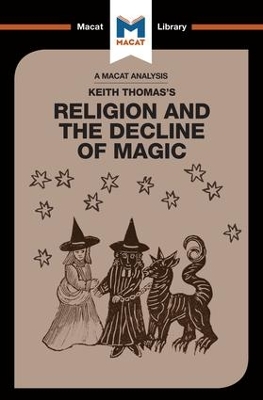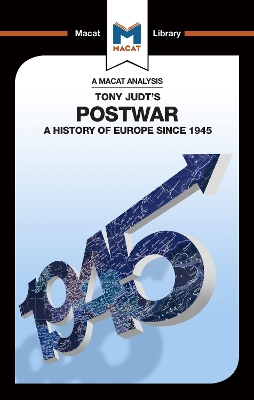The Macat Library
4 total works
An Analysis of Keith Thomas's Religion and the Decline of Magic
by Simon Young and Helen Killick
Keith Thomas's classic study of all forms of popular belief has been influential for so long now that it is difficult to remember how revolutionary it seemed when it first appeared.
By publishing Religion and the Decline of Magic, Thomas became the first serious scholar to attempt to synthesize the full range of popular thought about the occult and the supernatural, studying its influence across Europe over several centuries. At root, his book can be seen as a superb exercise in problem-solving: one that actually established "magic" as a historical problem worthy of investigation. Thomas asked productive questions, not least challenging the prevailing assumption that folk belief was unworthy of serious scholarly attention, and his work usefully reframed the existing debate in much broader terms, allowing for more extensive exploration of correlations, not only between different sorts of popular belief, but also between popular belief and state religion. It was this that allowed Thomas to reach his famous conclusion that the advent of Protestantism - which drove out much of the "superstition" that characterised the Catholicism of the period - created a vacuum filled by other forms of belief; for example, Catholic priests had once blessed their crops, but Protestants refused to do so. That left farmers looking for other ways of ensuring a good harvest. It was this, Thomas argues, that explains the survival of what we now think of as "magic" at a time such beliefs might have been expected to decline - at least until science arose to offer alternative paradigms.
Tony Judt decided to write Postwar in 1989, the year the collapse of the Soviet Union provided European history with a rare example of a clearly-signposted 'end of an era'.
It's scarcely surprising, then, that the great virtue of Judt's book is the clarity and the breadth of its account of postwar Europe. His book coalesces around one central theme: the idea that the whole of the history of this period can be explained as an unravelling of the consequences of World War II. A bold claim, but Judt's exceptional ability to create strong, well-structured, inclusive arguments allows him to pull it off convincingly.
Judt's work is also a fine example of creative thinking, in that he excels in connecting things together in new and interesting ways. This virtue extends from his unusual ability to combine the best elements of the Anglo-American and the French historiographical traditions - the latter informing his strong interest in the importance of cultural history - to his unwillingness to allow himself to be constrained by historical category and ultimately to his linguistic abilities. Postwar is, above all, a triumph of integration, something that is only made possible by its author's flair for creating strong, persuasive arguments.


